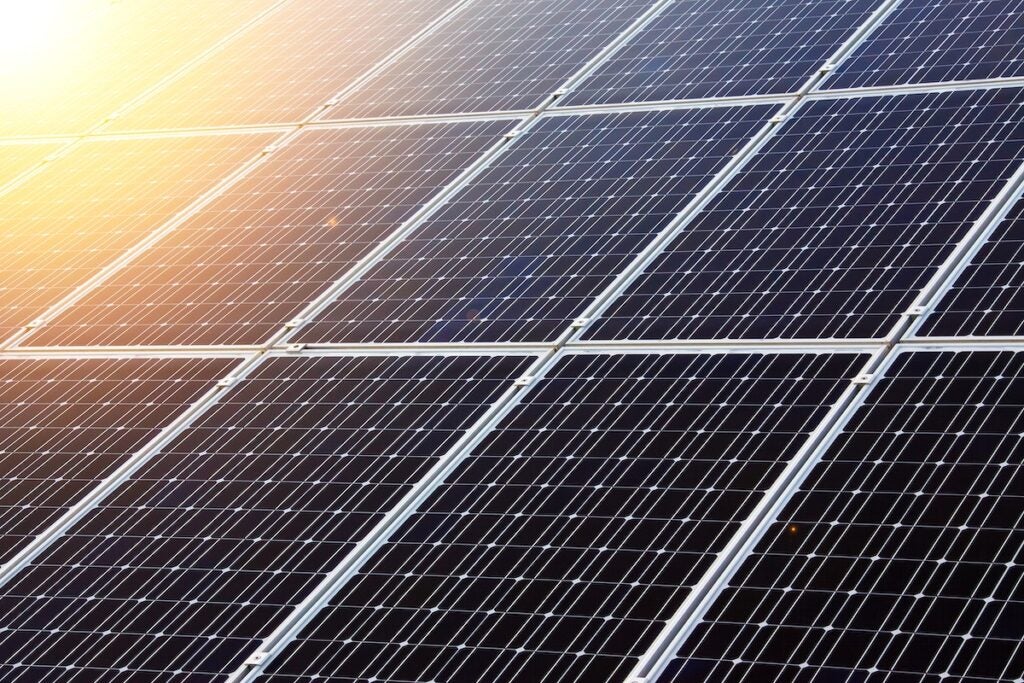More rooftop solar means energy and economic justice for Puerto Rico
Seven years after hurricanes Irma and Maria made landfall on Puerto Rico in 2017, the island continues to struggle with a deficient electrical power infrastructure. Power outages are common, the price of electricity continues to increase and the reconstruction of the power grid is not happening fast enough. Power outages affect rural and urban communities in Puerto Rico and endanger the lives of the most vulnerable.
Prolonged power outages, coupled with extremely high temperatures caused by climate change, directly affect our communities. Individuals with energy-dependent medical conditions, those that are bedridden, people with chronic medical conditions and others that need electricity 24 hours per day suffer the consequences caused by failing power infrastructure. This can also have significant negative economic impacts on working families who lose medicines and food that require refrigeration. The voltage volatility of the power systems can also damage electrical appliances. In short, working families can’t provide warm healthy meals or an adequate learning environment for their kids.
More rooftop solar means energy and economic justice for Puerto Rico Share on XHowever, residential solar photovoltaic ,or PV, and battery energy storage, or BES, systems provide immediate solutions to the power outages currently affecting working families because these systems can be grid tied and provide on-demand power service when an outage occurs. Households that have rooftop solar PV and BES systems with net metering contracts transition from being consumers of electricity to net power producers or prosumers, thereby decreasing the negative economic impacts brought on by power outages.
Net-metering offers a powerful economic incentive for families to adopt rooftop solar by compensating them for excess power generated and sold back to the grid. In Puerto Rico, over 100,000 grid-tied systems collectively provide more than 600 megawatts of power. This clean and resilient energy supports the power grid operator’s demand response program during peak periods. The Financial Oversight and Management Board of Puerto Rico has opposed legislation passed earlier this year to extend the net-metering program until 2030, requiring the Puerto Rico Energy Bureau to revise and modify the net-metering program now. We support keeping the extension in place to advance and accelerate rooftop solar installations in Puerto Rico.
Since 2020, Environmental Defense Fund has collaborated with local organizations on the island municipality of Culebra on a rooftop solar PV and BES systems. This community-based project has energized the community in Culebra, which has embarked on an ambitious energy transition mission to become the Caribbean’s first solar-powered island. EDF supports the communal goal of decentralized power generation and works to assert the rights of the communities in Culebra to a just energy transition, to take agency of their energy future and have equitable access to solar PV and BES systems.
EDF installed 45 Culebra households with rooftop solar PV and BES systems, which provided clean and reliable power after the impacts of the latest hurricane, Fiona in 2021. In addition, EDF is in the planning stages of U.S. Department of Energy grant to expand to an additional 100 to 150 solar PV and BES systems to low-income families in Culebra. Meanwhile, the participants of the initial 45-home community-based project are participating in a series of workshops to decide the collective administrative model will provide operation and maintenance, or O&M services to their systems. It is very important that the people of Culebra decide how they will operate and maintain their solar PV and BES systems in the long run. A local O&M service provider will lower contract costs and decrease response times.
In recent weeks, eight residents from Culebra participated in GRID Alternatives, a California-based organization, Installation Basics Training, or Solar IBT120, program Juncos, PR. The Solar IBT 120 program provides training in all components of photovoltaic systems including: safety, design, construction, and mounting, basic installation, operation and maintenance. These eight people will be part of Culebra’s green energy workforce that will be essential for the long-term operation and maintenance of the PV and BES systems installed in Culebra.
The ongoing energy transition of Culebra is based upon community supported initiatives that can be replicated across Puerto Rico. Communities around the island and Vieques and non-for-profit organizations need to work together to access public funds to initiate communities’ own energy transition processes. Currently Puerto Rico has unprecedented access to economic and technical resources like in no other time in its history, which can facilitate this energy transition. We must seize the opportunity to make the renewable energy transition accessible to all corners of Puerto Rico and Vieques. This push must include equitable access to life saving technology not just for Culebra, but for all Puerto Ricans in the archipelago.











